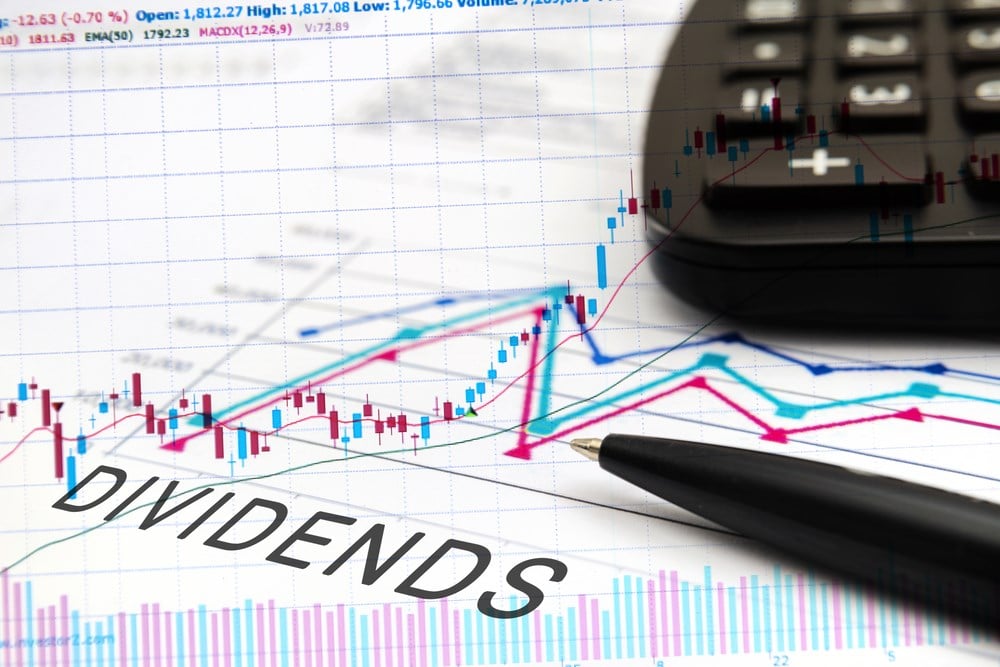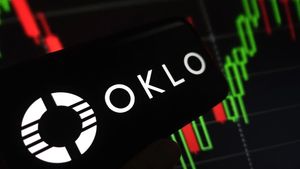
Dividend investors are willing to sacrifice growth in exchange for income collecting periodic dividend payments. This makes dividend stocks a stable, heavily owned and long-term investment.
Strong dividend stocks tend to pay smaller dividends as the underlying shares appreciate. Investors willing to absorb more risk may prefer allocating a portion of their portfolio to high-yield dividend stocks.
These stocks are high-yielding because they are volatile and priced to reflect it. This article will highlight the five best high-yield dividend stocks in any economic climate. If you're risk-tolerant and seek higher income with growth potential, proceed carefully.
Overview of the Best High-Yield Dividend Stocks
When defining what is considered high-yield, we must look at stocks that pay dividends and filter the stocks with the highest dividends. We can describe a high-yield dividend as having an annual percentage rate (APR) higher than the average yield of the benchmark indexes. For example, the S&P 500 Index has a dividend yield of 1.48%.
Rising interest rates have made money market accounts and certificates of deposit (CDs) attractive, yielding above 4%. High-dividend stocks should have a higher yield than the S&P 500, but the best high-yield dividend stocks should have yielded even higher than fixed-income instruments and FDIC-insured deposit saving accounts.
None of it comes without risk. The S&P 500 Index yield can be considered low. That's because the index rose more than 15%. The higher the stock or index, the lower the yield percentage falls. Therefore, high-yield dividend stocks tend to have weaker stock prices, making them mathematically have high yields.
Why Invest in High-Yield Dividend Stocks?
Why invest in high dividend-yielding stocks? The simple answer is that they pay more income. High dividend yield stocks pay a higher percentage of income relative to blue-chip dividend stocks. Investors seeking a higher income and accepting the associated risks are best suited for these stocks. Dividends can be reinvested back into the stock, taking advantage of compounding.
There's also the potential for stock appreciation to complement your high dividend. Dividends also provide a tax advantage if they are qualified dividends that meet the specifications set by the IRS. Qualified dividends have a lower tax rate of up to 20% versus ordinary income top tax rate of 37%, as they get taxed at a lower rate than ordinary income.
5 Best High Yield Dividend Stocks for Any Economic Climate
Here's a list of the five best high-yield dividend stocks. It's important to research if you are considering investing in any on this list. Many of these stocks are underperformers and may even be negative for the year, so the dividend yield is high. There is the potential for stock appreciation, which can also result in gains from the underlying stock rise. While these may not be the stocks with the highest yield, they are also mostly blue-chip large-cap stocks that aren’t in danger of going out of business in the foreseeable future.
|
Name |
Ticker |
Market cap |
Industry |
|
Verizon Wireless |
$139 billion |
Telco/Broadband |
|
|
Altria Group |
$76 billion |
Tobacco |
|
|
Realty Income Co. |
$40.4 billion |
REIT |
|
|
Enbridge |
$70.5 billion |
Energy |
|
|
Walgreen Boots Alliance |
$23.5 billion |
Pharmacy/Retail |
1. Verizon Communications Inc.
Verizon Communications Inc. (NYSE: VZ) is the country's largest wireless carrier, with over 100 million subscribers and the second-largest wireline service provider. It offers prepaid, postpaid and unlimited 5G plans.
Verizon offers internet subscription plans under its Fios brand, which include fiber optic, DSL and mobile hotspots. Fios internet subscriptions continue to grow with broadband net additions, while wireless has been slipping. Verizon offers cloud computing and many software-as-a-service (SaaS) and data services. Verizon's Q2 2023 topline revenues declined by 3.5% to $32.6 billion, but the $1.21 EPS beat estimates by four cents.
It reaffirmed its full-year 2023 EPS guidance of $4.55 to $4.85 and reiterated its total wireless service revenues growth forecast of 2.5% to 4.5%. Like all telecoms, Verizon has a heavy debt load of $126 billion but a leverage ratio of 2.6x, better than many of its competitors. Verizon and competitor AT&T Inc. (NYSE: T) have had scrutiny over decades-old legacy toxic lead cables. They dispute the allegations and await potential regulatory actions, possibly leading to fines and expensive replacement costs. Wireless broadband stocks are some of the best high-dividend stocks. VZ is trading down 17% year-to-date (YTD) and has a 7.89% annual dividend yield.
Learn more about Verizon Wireless analyst ratings and price targets at MarketBeat.
2. Altria Group Inc.
Altria Group Inc. (NYSE: MO) is the parent company of the largest tobacco company in the world, Phillip Morris. As smoking rates decline, the company can still churn strong profits and bolster its non-smoke segments. Altria continues to post 2% annual growth rates with a wide free cash flow margin. The company consistently performs stock buyback programs and has a solid dividend history, making it a very shareholder-oriented enterprise.
There's a constant regulatory risk with its tobacco products. The move away from tobacco into e-cigarettes is a secular trend Altria is cashing in on. The company acquired NJOY for e-vapor commercialization. The worldwide e-cigarette should grow at a 16% compound annual growth rate (CAGR). Altria is also scoring the lead on its smokeless oral nicotine products, considered a less harmful alternative to cigarette smoking.
Consumers are shifting away from smoke products, but Altria has been building its moat with smokeless and oral nicotine products. These are considered its future as the company has stated that it's moving its business beyond smoking and believes in a smoke-free future. MO shares are trading down 5.6% YTD and have an 8.83% annual dividend yield.
Check out Altria Group analyst ratings and price targets at MarketBeat.
3. Realty Income Inc.
Realty Income Inc. (NYSE: O) is a real estate investment trust (REIT). REITs are companies that own and lease income-producing real estate property. They can be some of the best dividend stocks to buy now. REITs enable investors to partake in the piece of the income that comes with owning real estate without having to own it. REITs are stocks that have very specific rules in place. The major rules include that at least 75% of its gross income must come from real estate-related sources; it must distribute 90% of its taxable income through dividends, and at least 75% real estate assets or cash and receivables.
Realty Income is one of the largest REITs in the world. It invests in single-tenant commercial properties, which are leases to some of the most well-known brands in the world, including Walgreens Boots Alliance Inc. (NYSE: WBA), Dollar General Co. (NYSE: DG), Dollar Tree Inc. (NASDAQ: DLTR) and FedEx Co. (NYSE: FDX). Realty Income owns over 11,200 properties with over 213 million leasable square feet. Its average retail property is over 244,000 square feet. REITs can be a solid part of a dividend capture strategy. Realty Income is trading down 10.66% year-to-date and has a 5.39% annual dividend yield. It pays its dividend monthly.
Learn more about Realty Income analyst ratings and price targets at MarketBeat.
4. Enbridge Inc.
Enbridge Inc. (NYSE: ENB) is a Canadian-based energy infrastructure company operating in multiple segments. It delivers energy and transports and stores crude oil and natural gas. It operates Canada's largest natural gas distribution network. Rising energy prices are a boon to its business model, which relies on securing long-term contracts and hedging commodity pricing. The company also invests in clean energy assets, including solar projects, wind farms and other renewable energy projects.
Most of its revenues come from its liquids pipelines segment, which accounts for 57% of total revenues. Enbridge operates 17,809 miles of crude oil and liquids pipeline across North America, 9,299 miles in the U.S. and 8,510 miles in Canada. It is the world's largest operating oil pipeline. The second largest revenue segment is Gas Transmission and Midstream, with 29% of revenues. The company transported over 4.3 billion barrels of oil with a 99.99996% safe delivery record, generating $39.8 billion in 2022.
Enbridge transports 30% of the crude oil produced in North America and 40% of total U.S. crude oil imports. Energy companies can be some of the highest-yielding dividend stocks. Enbridge trades down 10.7% year-to-date and pays a 7.5% annual dividend yield. It has consistently paid a dividend for over 67 years and has raised its dividend for 28 consecutive years.
Learn more about Enbridge analyst ratings and price targets at MarketBeat.
5. Walgreens Boots Alliance Inc.
Walgreens Boots Alliance Inc. (NYSE: WBA) is the second-largest drugstore chain in the U.S., with more than 9,200 stores in 50 states. It merged with U.K. pharmacy health and beauty retailer Alliance Boots, which has more than 2,200 stores throughout Europe, making it the second-largest pharmacy chain. The company has been experiencing normalization as the pandemic falls further in the rearview mirror.
During the pandemic, it provided COVID-19 testing and immunizations. The lower instances of COVID-19 services and a more cautious macroeconomic forward view prompted Walgreens to lower its full-year 2023 adjusted EPS guidance of $4 to $4.15. It will also be paying a high effective tax rate in Q4 2023.
Walgreens continues expanding its medical care services from the synergies of its pharmacy services. Its healthcare portfolio consists of stakes in Walgreens Health, Acrocentric, Shields Health Solutions and VillageMD, co-located adjacent to 200 Walgreens stores. Its healthcare portfolio had revenues of $1.98 billion in Q3 2023, up 22% year-over-year (YoY). The company is transitioning into an integrated healthcare provider as it joins the stock list that pays high dividends.
Walgreens expects fiscal full-year 2024 adjusted operating income to grow low to mid-single digits. WAG is down 28.5% YTD and pays a 7.07% annual dividend yield.
Learn about Walgreens Boots Alliance analyst ratings and price targets at MarketBeat.
Inherent Risks with High-Yield Dividend Stocks
We emphasized the risky nature of investing in stocks with the highest dividends. Here are some of the most critical risks involved with it.
- Weakening company fundamentals and stock prices: As you may have noticed, the five stocks on our list are all underperforming the benchmark indexes. They are down 5% to 29% compared to the S&P 500, rising 15% YTD in 2023. This is why the dividend yields are high and could increase if shares continue to fall.
- Dividend cuts are suspensions: One of the biggest problems with high-yield dividend stocks is the possibility of the dividend being cut or suspended. A weakening stock price may be indicative of weak fundamentals. The company may need to preserve cash and cut or suspend dividends until fundamentals improve. These companies on our list have a long history of paying dividends.
- Interest rate impact: REITs can be sensitive to interest rate changes. REITs borrow capital to acquire properties. Rising interest rates can impact capital and financing costs, reducing profitability on new investments. It also makes it more expensive to refinance debt.
- Focusing too much on yields: It's easy to focus solely on the high dividend payment and ignore poor fundamentals. Selecting the best stocks with high dividends should be the focus, not just the highest dividend yield stocks. In other words, the fundamentals matter. A winning dividend investment strategy should comprise various levels of risk, with allocation inversely siding with rising risk.
Methodology
We considered the potential upside appreciation for the stock price to determine the stocks on the list. Dividend stocks with a high yield tend to have depressed share prices, raising the risk factor of shares falling even lower, so the dividend percentage rises inversely. Divergence is the best protection when owning a portfolio of high-yield dividend-paying stocks. Each stock on the list is in a different sector or industry like communications, consumer staples, retail, energy and real estate. They are also sustainable businesses that have minimal possibility of bankruptcy.
The companies on the list have had a long history of paying dividends. The pandemic had an extreme impact on companies, and to their credit, none of the companies on the list suspended their dividends through the pandemic. Verizon did trim its dividend at the height of the pandemic in 2020. A dividend cut can become a reality if the company needs cash or decides to allocate it towards debt repayment. However, at these levels, the underlying share prices also have an upside potential.






